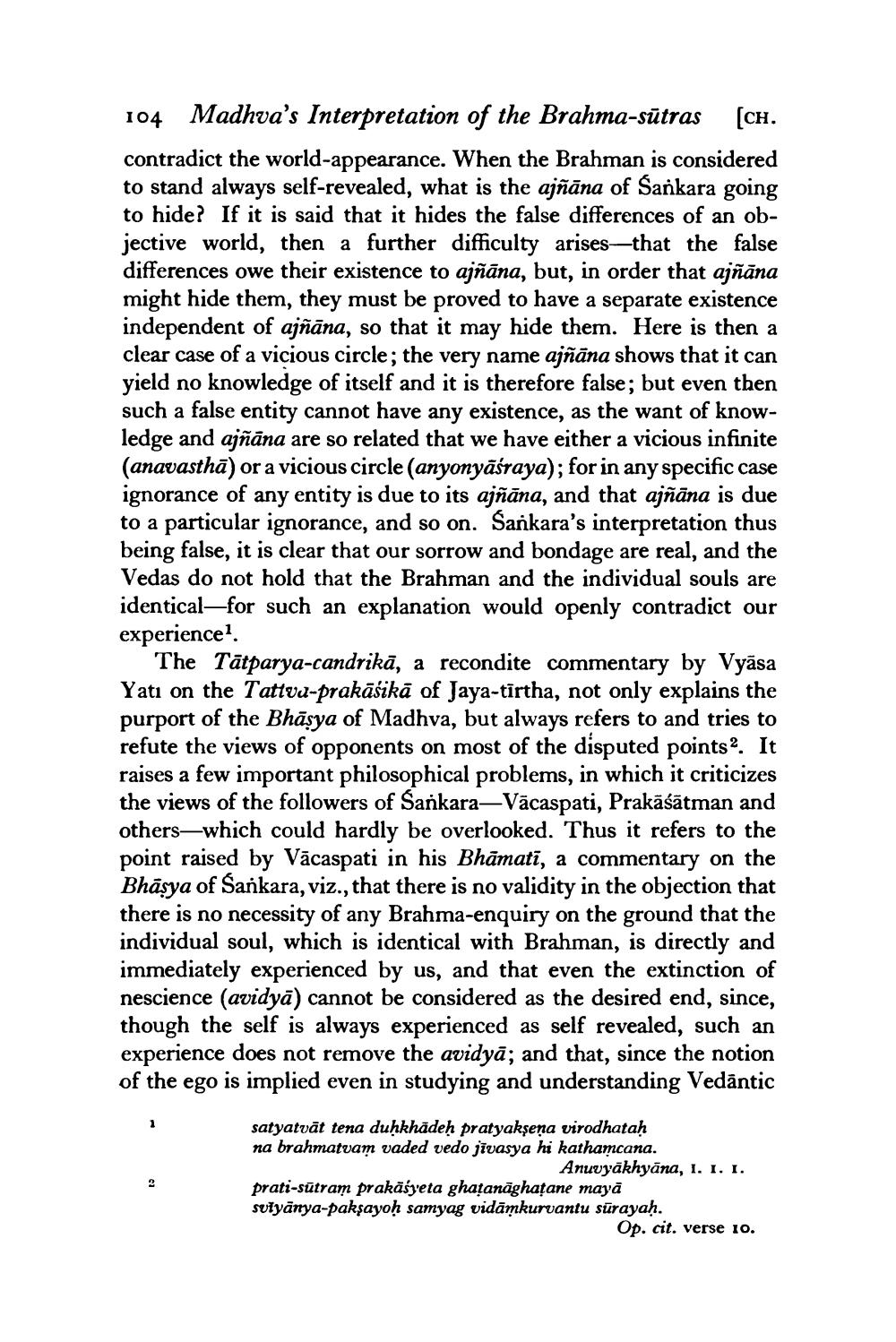________________
104 Madhva's Interpretation of the Brahma-sutras
[CH.
contradict the world-appearance. When the Brahman is considered to stand always self-revealed, what is the ajñāna of Sankara going to hide? If it is said that it hides the false differences of an objective world, then a further difficulty arises-that the false differences owe their existence to ajñāna, but, in order that ajñāna might hide them, they must be proved to have a separate existence independent of ajñāna, so that it may hide them. Here is then a clear case of a vicious circle; the very name ajñāna shows that it can yield no knowledge of itself and it is therefore false; but even then such a false entity cannot have any existence, as the want of knowledge and ajñāna are so related that we have either a vicious infinite (anavasthā) or a vicious circle (anyonyasraya); for in any specific case ignorance of any entity is due to its ajñāna, and that ajñāna is due to a particular ignorance, and so on. Sankara's interpretation thus being false, it is clear that our sorrow and bondage are real, and the Vedas do not hold that the Brahman and the individual souls are identical for such an explanation would openly contradict our experience1.
The Tatparya-candrikā, a recondite commentary by Vyasa Yatı on the Tattva-prakāśikā of Jaya-tirtha, not only explains the purport of the Bhasya of Madhva, but always refers to and tries to refute the views of opponents on most of the disputed points2. It raises a few important philosophical problems, in which it criticizes the views of the followers of Sankara-Vācaspati, Prakāśātman and others which could hardly be overlooked. Thus it refers to the point raised by Vacaspati in his Bhāmatī, a commentary on the Bhasya of Sankara, viz., that there is no validity in the objection that there is no necessity of any Brahma-enquiry on the ground that the individual soul, which is identical with Brahman, is directly and immediately experienced by us, and that even the extinction of nescience (avidyā) cannot be considered as the desired end, since, though the self is always experienced as self revealed, such an experience does not remove the avidyā; and that, since the notion of the ego is implied even in studying and understanding Vedantic
1
2
satyatvāt tena duḥkhadeḥ pratyakşena virodhataḥ na brahmatvam vaded vedo jivasya hi kathamcana. Anuvyākhyāna, I. I. I.
prati-sutram prakäsyeta ghatanaghaṭane mayā sviyānya-pakṣayoḥ samyag vidāṇkurvantu sūrayaḥ.
Op. cit. verse 10.




